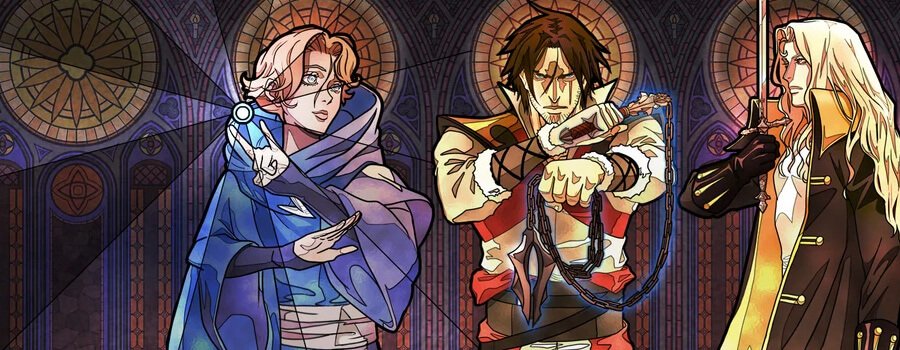The Roads To Hell: Timely Themes in Netflix’s Castlevania Season 3

Warning: There are spoilers below for the the current three seasons of Castlevania. Season 3 is great and I recommend you watch the entire series now before you read further.
If you had told me that the Castlevania video games series I loved playing as a child would turn many years later into an amazing anime series that not only has great action and gore but does a stupendous job exploring corruption and human nature, I would have said you were a vampire trying to trick me into enslavement.
Season 3 of Castlevania, ten half-hour episodes you can stream now on Netflix, continues the story of not only Alucard, Trevor Belmont and Sypha Belnades, who at the end of Season 2 destroyed Dracula, but also the stories of some of the supporting characters/villains including Hector and Isaac. Honestly, with the death of Dracula at the end of Season 2, I was concerned where the story would go now that the Big Bad is no longer around. But I have to credit series writer Warren Ellis, because Season 3 made me realize that the real threat of the entire show was never Dracula.
This is a story about the corruptibility of human beings. This is a tale of how good intentions are subverted by the cruelty of of this world.
Looking back at Seasons 1 and 2, I see now that these characters, heroes and villains, have faced and dealt with the harshness of their reality. Each character’s story arc deals with this topic in greater depth is Season 3. Alucard in the first two seasons came across as sharing the same values and morals that his mother had in wanting to help humanity (and she ended up being burned as a witch for it) but by the end of this newest season, with his struggles with loneliness and treachery, you can see by his new “warnings” outside his castle that he has stepped closer to his father’s way of thinking. Other characters like Isaac debate whether humanity deserves to survive due to its cruelty. Hector’s story is sad. The story of a tortured person being tricked into servitude is not a new thing in fiction, but goes along well with Ellis’ themes because it showcases fragility, naivety and temptation. Trevor and Sypha are heartbroken dealing with the truth of the Judge of Lindenfeld.
I’m really enjoying this morality play that is cleverly disguised as a horror anime. Here’s the real question I want to pose to you, reader: Is the theme Ellis is presenting in this series relevant today? I mean, there are no vampires or monsters, at least in the mythological sense, but how easily is it to slip from the road of morality? Is the stairway to heaven that you are travelling actually a highway to hell? What would you be like when food and shelter aren’t easily available and monsters are at your door? Will you be fighting for toilet paper in the aisles of your store when things seem dire?
I think these questions are important to explore, and I’m enjoying Ellis’ exploration of this in Castlevania. I hope you’re enjoying the show as well. Watch your steps.




